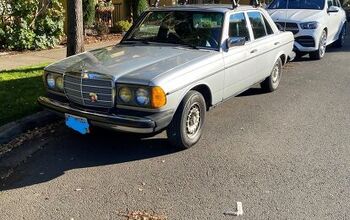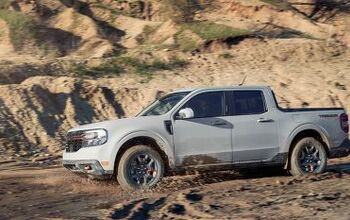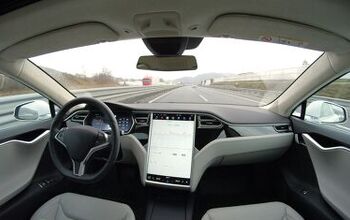Best Selling Cars Around The Globe: Haiti Hangs On To Work Horses
After Afghanistan and Norway, we fly over the Atlantic to land in Haiti so I can share with you where the car market is, 18 months after the devastating earthquake of February 2010.
If you were a tourist in Haiti or part of the emergency personnel flown to the island for the earthquake, then you may already know which cars are popular there (although it would have been the least of your worries!) so I suggest you go directly to my blog where I cover 154 other countries all around the planet. You will love it, I promise!
Right so the huge reconstruction effort the country has to go through means pick-ups, or work horses as they are sometimes called, are the favorite choice for anyone who has enough money to purchase a new vehicle. But which ones are the most successful?
Oh and for those who are not yet familiar with my methodology, here goes. When there is no official car sales data, as is the case for Haiti, I don’t despair. Far from it. I go and have a little chat with my old mate YouTube… It’s amazing the number of street videos of any random city people innocently upload on the internet! I focus on the most recent videos of the most important cities of any given country and after a couple of hours of research a pretty good picture of the best selling cars there starts to appear… Not perfect, but much better than nothing!
And the result of Haiti streets observation shows that as in neighboring Dominican Republic, Haitians seem to be fond of Nissan pick-ups, with the Nissan Frontier really really popular in its last few generations.
However it seems the Ford Ranger has taken the lead over the last 12 months in Haiti, with many of them roaming the streets of Port-au-Prince. Pick-ups are a great help in these troubled time as the main work tool for any reconstruction worker.
Aside from pick-ups, another Haitian car tradition seems to be buying lots of Suzuki/Chevrolet 4WD’s. The Chevrolet Vitara and Grand Vitara, sold under the Suzuki brand outside of South America, can be seen very frequently in the streets of Port-au-Prince.
4WDs are the logical choice in a country where previously paved roads are left with little maintenance and off-roading is more a necessity than a leisurely past-time… At that game Japanese and Korean models win: the Daihatsu Terios, Mazda Bt-50, Toyota Hilux, Hyundai Tucson and Mitsubishi L200 all seem to do well in Haiti.
However when it comes to decorating prizes, Isuzu vans seem to be the best bet! Where else but in ever-happy Haiti…
Matt Gasnier, based in Sydney, Australia, runs a blog named Best Selling Cars, dedicated to counting cars all over the world.
More by Matt Gasnier
Latest Car Reviews
Read moreLatest Product Reviews
Read moreRecent Comments
- Probert They already have hybrids, but these won't ever be them as they are built on the modular E-GMP skateboard.
- Justin You guys still looking for that sportbak? I just saw one on the Facebook marketplace in Arizona
- 28-Cars-Later I cannot remember what happens now, but there are whiteblocks in this period which develop a "tick" like sound which indicates they are toast (maybe head gasket?). Ten or so years ago I looked at an '03 or '04 S60 (I forget why) and I brought my Volvo indy along to tell me if it was worth my time - it ticked and that's when I learned this. This XC90 is probably worth about $300 as it sits, not kidding, and it will cost you conservatively $2500 for an engine swap (all the ones I see on car-part.com have north of 130K miles starting at $1,100 and that's not including freight to a shop, shop labor, other internals to do such as timing belt while engine out etc).
- 28-Cars-Later Ford reported it lost $132,000 for each of its 10,000 electric vehicles sold in the first quarter of 2024, according to CNN. The sales were down 20 percent from the first quarter of 2023 and would “drag down earnings for the company overall.”The losses include “hundreds of millions being spent on research and development of the next generation of EVs for Ford. Those investments are years away from paying off.” [if they ever are recouped] Ford is the only major carmaker breaking out EV numbers by themselves. But other marques likely suffer similar losses. https://www.zerohedge.com/political/fords-120000-loss-vehicle-shows-california-ev-goals-are-impossible Given these facts, how did Tesla ever produce anything in volume let alone profit?
- AZFelix Let's forego all of this dilly-dallying with autonomous cars and cut right to the chase and the only real solution.







































Comments
Join the conversation
Around the Petionville camp, when I was there 6 weeks after the quake far and away the most common were diesel Toyota pickups and other Hilux variants. The tap taps (the colorful things) that clogged the street seemed to be mainly Toyota pickups with welded cages in the bed. The larger ones were primarily Isuzu vans. I can tell you from experience that the Isuzu tap taps were bloody awful to ride in. There were not all the many Fords around at that point but quite of few Mitsubishis and Mazdas. Oddly enough the Porsche dealership seemed awfully quiet.
Damn, even Haiti is getting new Ranger and Mazda BT-50! I guess Ford and Mazda takes Canada and US for developing countries, that's the only reason we're getting discontinued elsewhere ancient Ranger and its Mazda twin.